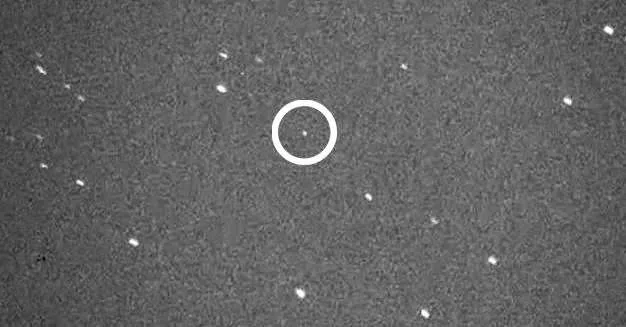I have been doing extremely in depth research into my early fall and winter outlooks. I was hoping to have it ready to post now, but more and more data is becoming available so it may be a few more days. In the meantime, I have become aware of news in space that could have dire consequences on the future of Earth.
Though it isn’t expected in our lifetime, NASA is planning to launch a probe to study an asteroid that could one day pulverize the Earth. A huge asteroid hurtling through space at 63,000mph could one day hit Earth causing "immense suffering and death", astronomers say. The space rock was  discovered in 1999 and is likely to blast in between the Earth and the moon in 2135 – a little too close for comfort. It is estimated the asteroid known as 101955 Bennu, crosses Earth’s orbit once every six years and has gotten ever closer since it was discovered in 1999 and it could actually strike our planet. The asteroid measures around a third of a mile across, and a space rock of that size is – on average – expected to hit the Earth every 130,000 years.
discovered in 1999 and is likely to blast in between the Earth and the moon in 2135 – a little too close for comfort. It is estimated the asteroid known as 101955 Bennu, crosses Earth’s orbit once every six years and has gotten ever closer since it was discovered in 1999 and it could actually strike our planet. The asteroid measures around a third of a mile across, and a space rock of that size is – on average – expected to hit the Earth every 130,000 years.

The probe’s journey will involve a year of orbiting the sun to build up speed before it slingshots back around Earth, using the planet’s gravity to align its orbit with the asteroid’s, the Times reports. They will rendezvous in August 2018. Osiris-Rex will then spend a year mapping the asteroid and then hover above its surface to pick up some rubble, before flying back to Earth. An asteroid impact is also the stuff of science fact. There are obvious craters on Earth (and the moon) that show us a long history of large objects hitting the planet.
The most famous asteroid ever is the one that hit Earth 65 million years ago. It's thought that this asteroid threw so much moisture and dust in to the atmosphere that it cut off sunlight, lowering temperatures worldwide and causing the extinction of the dinosaurs. So, what if an asteroid were to hit Earth today? Any asteroid falling from the sky would have a tremendous amou nt of energy.
nt of energy.
Here's a typical example. In 2028, the asteroid 1997XF11 will come extremely close to Earth but will miss the planet. If something were to change and it did hit Earth, what you would have is a mile-wide asteroid striking the planet's surface at about 30,000 mph. An asteroid that big traveling at that speed has the energy roughly equal to a 1 million megaton bomb. It's very likely that an asteroid like this would wipe out most of the life on the planet.
If an asteroid that big were to land in the ocean, it would cause massive tidal waves hundreds of feet high that would completely scrub the coastlines in the vicinity. In other words, if an asteroid strikes Earth, it will be a really, really bad day no matter how big it is. If the asteroid is a mile in diameter, it's likely to wipe out life on the planet. Let's hope that doesn't happen anytime soon! Feel free to comment on this post and be sure to hit the “Like” button at the bottom.





